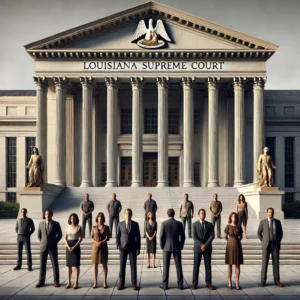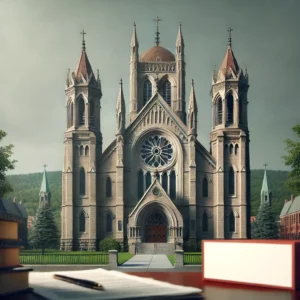Historic Immunity Law Could Shield Charleston Diocese from 1970s Abuse Lawsuit
The South Carolina Supreme Court convened on December 10 to review a contentious sexual abuse case against the Roman Catholic Diocese of Charleston, focusing on whether a defunct legal doctrine shields the church from liability. The case centers on allegations from 1970 when two teachers reportedly sexually assaulted a student at Sacred Heart Catholic School in Charleston. While the state abolished charitable immunity in 1981, the timing of the alleged incidents has placed the doctrine at the center of the legal battle. The high court’s decision could set a precedent for handling historical abuse cases within religious institutions.
5 Key Points
- Charleston man filed a lawsuit in 2018 alleging sexual assault by two teachers in 1970.
- The lower court granted summary judgment favoring the Diocese under the charitable immunity doctrine.
- South Carolina abolished charitable immunity protection in the 1981 Fitzer v. Greater Greenville YMCA case.
- Court of Appeals upheld the initial ruling protecting the Diocese.
- Supreme Court agreed to review the case after the victim appealed.
Diocese Claims 1970s Abuse Falls Under Historic Immunity Shield
“Charities are entitled to full immunity from tort liability,” Diocese attorney Richard Dukes told the Supreme Court on December 10, citing the Caughman vs. Columbia YMCA case. Dukes argued that South Carolina law explicitly protected religious and charitable organizations from staff misconduct claims during the 1970s. The Diocese’s defense rests on the timing of the alleged assaults at Sacred Heart Catholic School, which occurred 11 years before South Carolina abolished charitable immunity protections. Judge Bentley Price’s initial summary judgment favored this interpretation, determining that the doctrine’s later repeal could not retroactively create liability.
Supreme Court Questions Precedent’s Application to Abuse Claims
Chief Justice John Kittredge focused on the Jeffcoat v. Caine decision during oral arguments, pressing the victim’s attorney, Jim Richardson, on its relevance. “So your viewpoint, Mr. Richardson, is Jeffcoat really is dispositive in this case, and if we adhere to Jeffcoat, then you prevail, and we reverse the court of appeals?” Kittredge asked. Richardson’s response emphasized the centrality of this precedent: “That’s the whole case, your honor — the whole case.” The exchange revealed how the court’s interpretation of historical cases could determine whether decades-old abuse claims can proceed against religious institutions.
Timeline of Legal Protection Shapes Current Battle
The Charleston man filed his lawsuit in 2018, alleging two Sacred Heart Catholic School teachers sexually assaulted him in 1970. The South Carolina Court of Appeals upheld Judge Price’s summary judgment, citing the 1981 Fitzer v. Greater Greenville YMCA ruling formally ending charitable immunity. This created a critical timing question: should institutions maintain immunity for actions that occurred while the doctrine was active, even after its repeal? The Supreme Court’s impending decision will determine whether the Charleston Diocese must face trial for alleged abuse that occurred during the immunity era.
FAQ
Q: What are my legal options if I experienced sexual abuse by a clergy member?
A: If you were sexually abused by a clergy member, you may have the right to take legal action. Contact our legal experts to learn about your rights and start a free, confidential case review.
Q: Can churches be sued for sexual abuse that happened in the 1970s?
A: Yes, churches can be sued for historical sexual abuse, but in South Carolina, cases from the 1970s face legal challenges due to the charitable immunity doctrine that existed until 1981.
Q: What is the charitable immunity law for churches in South Carolina?
A: Charitable immunity protected churches and other charitable organizations from liability for staff misconduct until 1981. The South Carolina Supreme Court repealed it in the Fitzer v. Greater Greenville YMCA case.
Q: How long do victims have to file church abuse lawsuits in South Carolina?
A: While this case shows victims can file lawsuits decades later (filed in 2018 for 1970 incidents), each case faces unique legal challenges based on when the abuse occurred and applicable laws at that time.
Q: Does charitable immunity still protect churches from abuse lawsuits?
A: No, South Carolina eliminated charitable immunity in 1981, but churches may still claim this protection for incidents before 1981, as demonstrated in this Charleston Diocese case.
Q: What happens if the SC Supreme Court rules against charitable immunity?
A: If the Supreme Court rules against charitable immunity in this case, it could allow the victim’s lawsuit against the Charleston Diocese to proceed to trial and potentially impact other historical abuse cases.
Citations
Morgan, Erin (December 11, 2024). South Carolina Supreme Court considers charitable immunity argument in sex abuse case involving Charleston church. WBTW News. https://www.wbtw.com/news/state-regional-news/south-carolina-supreme-court-considers-charitable-immunity-argument-in-sex-abuse-case-involving-charleston-church/amp/






